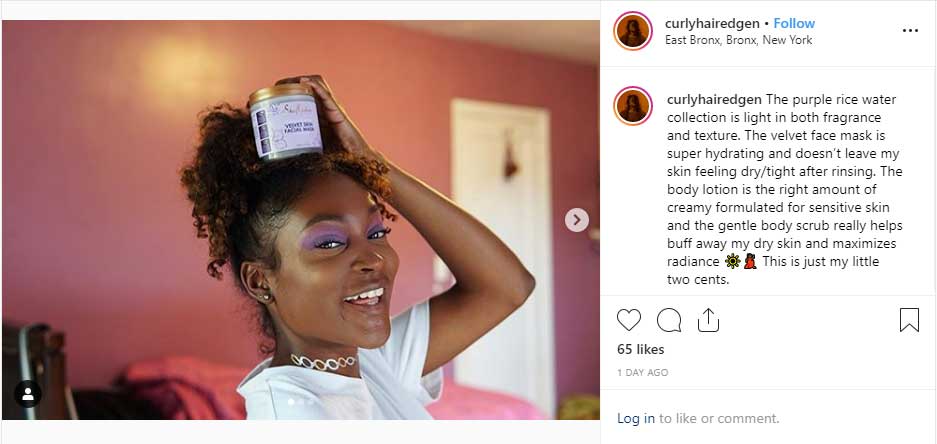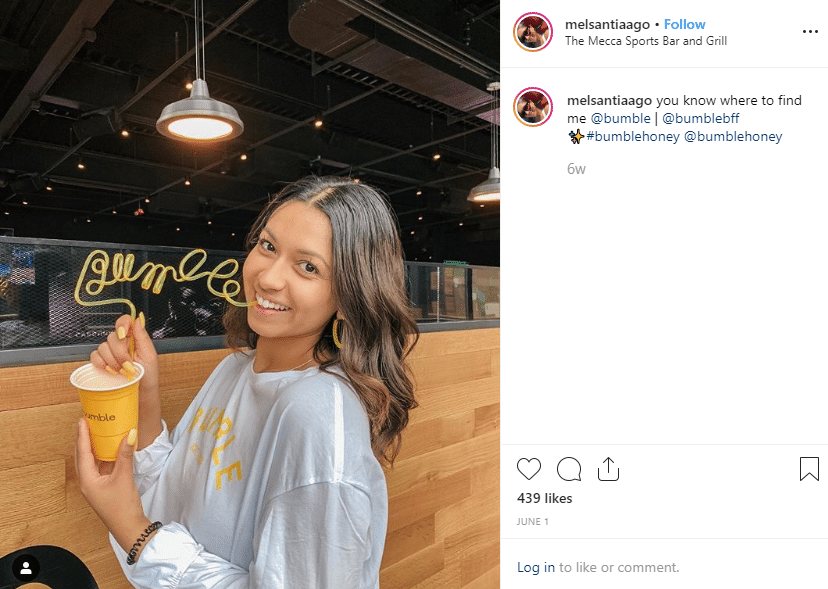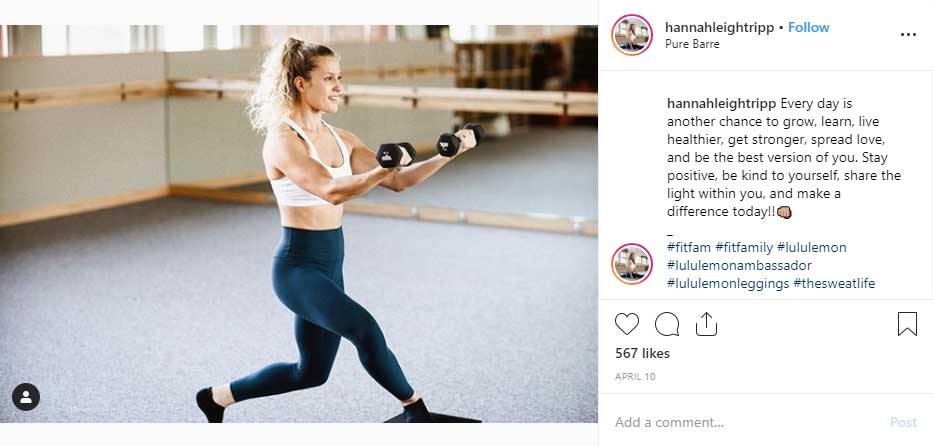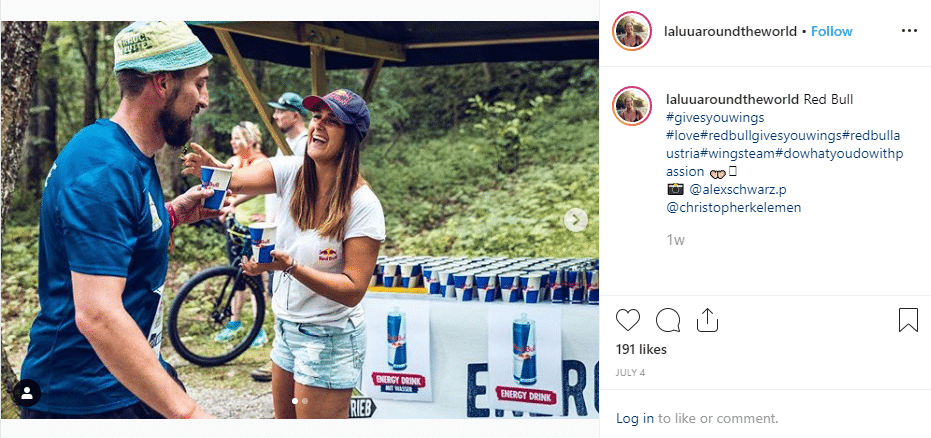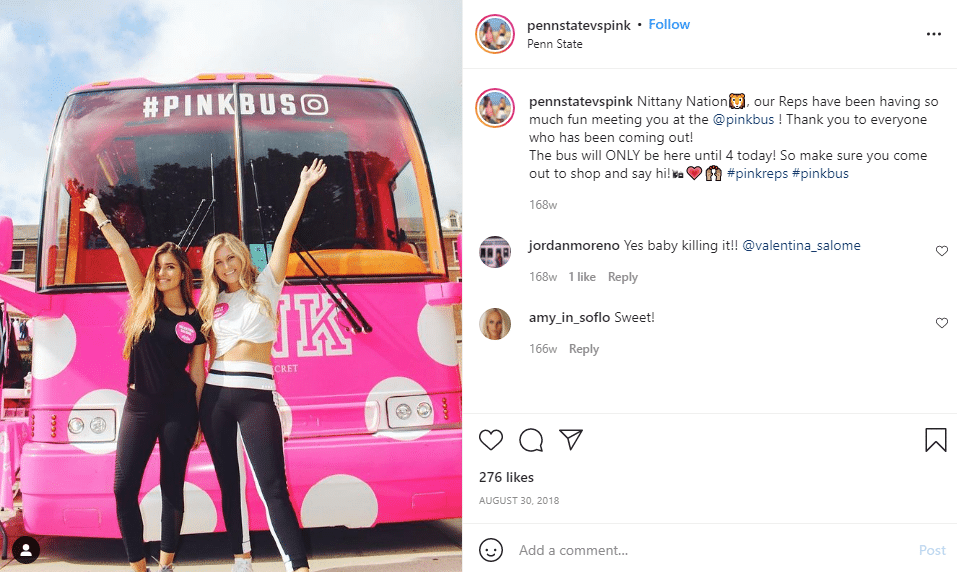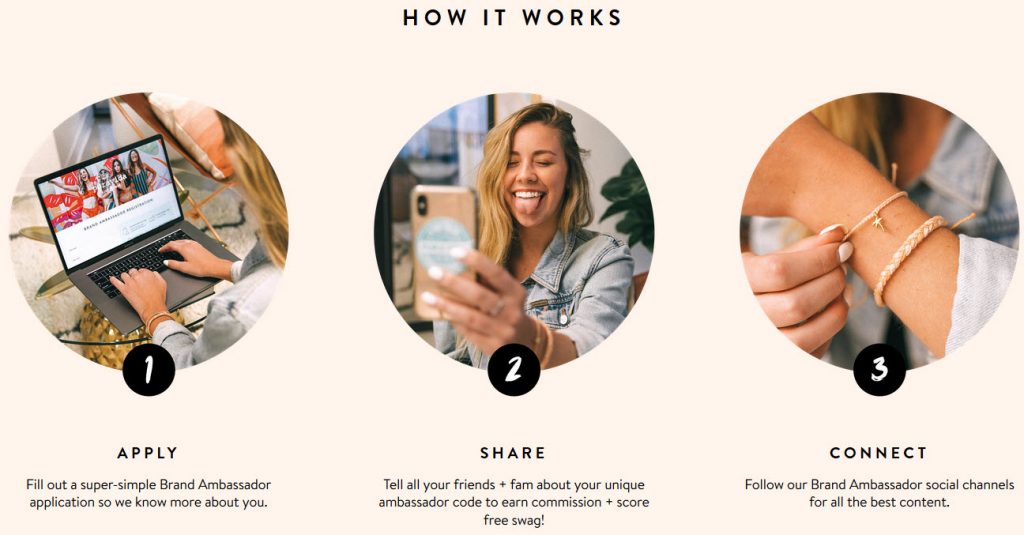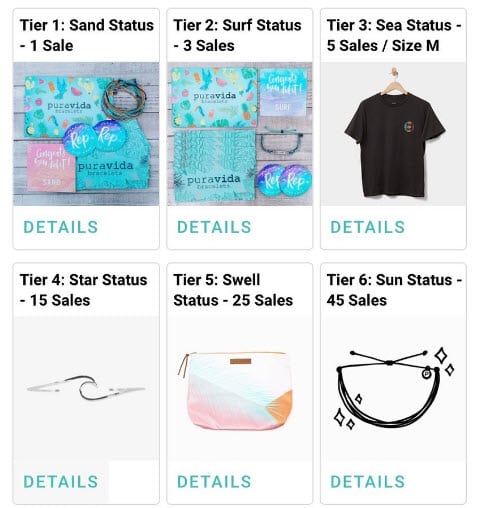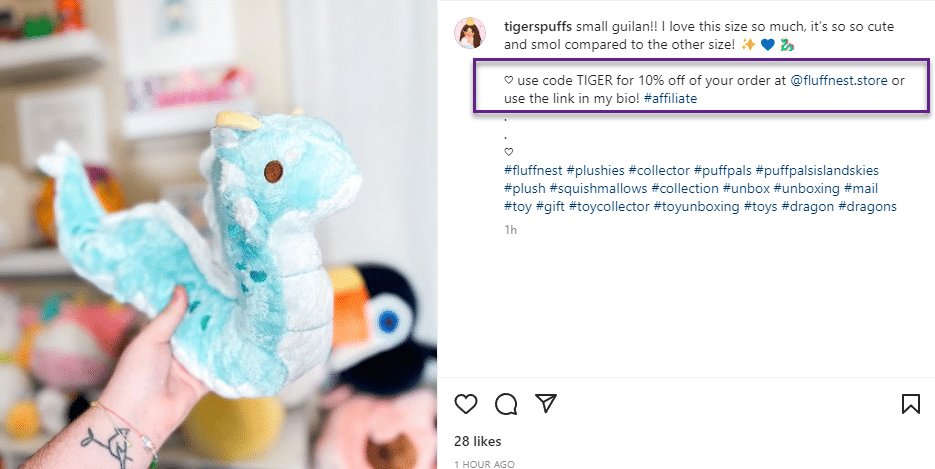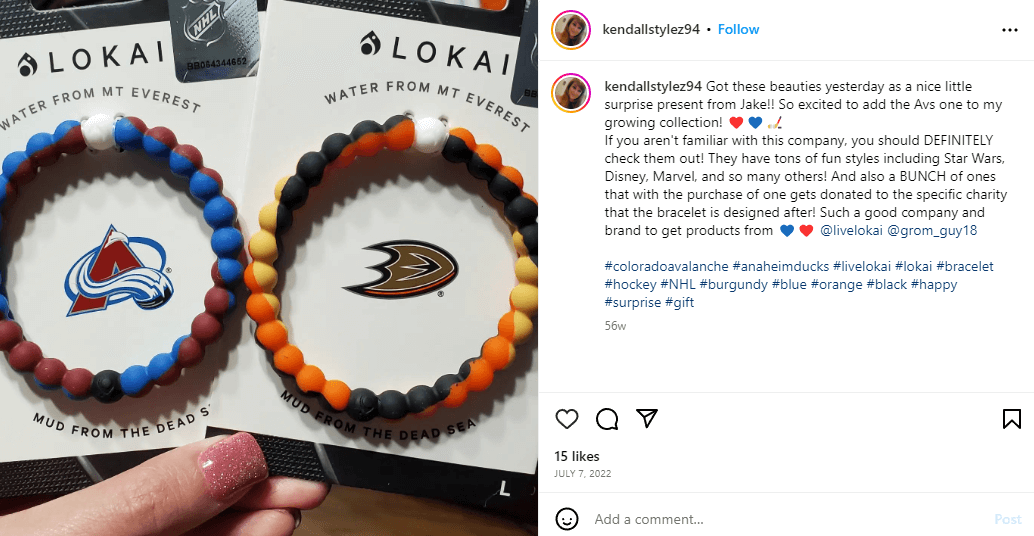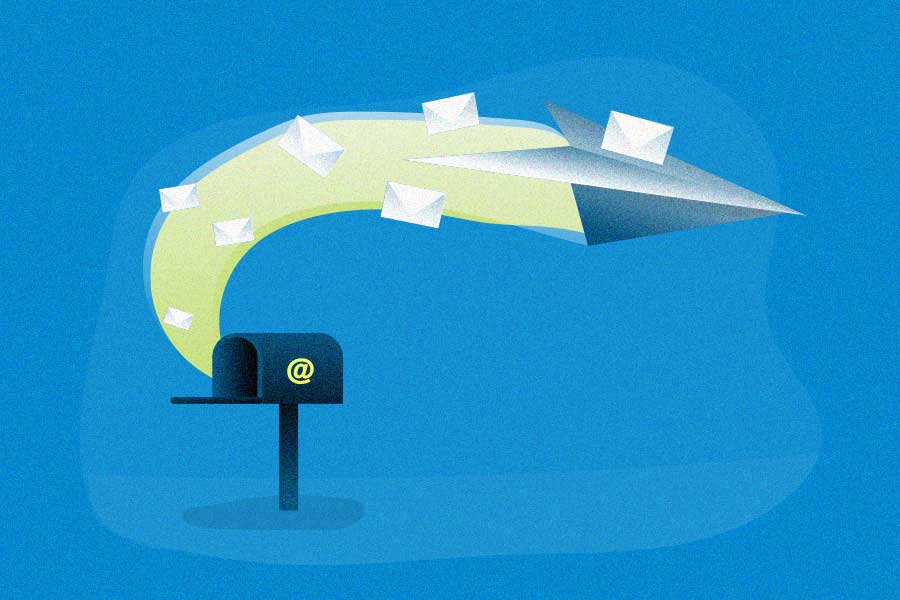Brand ambassadors are your brand’s reliable cheerleaders, both online and offline. Ambassadors are active customers and experts at sharing your products via word of mouth and informal, unscripted conversations.
Because they love your products, brand ambassadors remain loyal in the long-term. Not only are they devoted to seeing your brand succeed, ambassadors are active in promoting your products on social media, events, and other media channels. Their advocacy helps increase brand awareness and bring in new customers.
Brand ambassadors can be divided into several categories, depending on your brand, their influence in the market, the type of ambassador agreement, and more. What are the different types of ambassadors? Which type of brand ambassador is best for your business? We cover all this below.
10 different types of brand ambassadors
To make sure you choose the right person to help market your brand, let’s look at some of the most common types of brand ambassadors:
1. The peer advocate
Peer advocates are your existing customers. They share what they love about your products with people usually in the same demographic (age, location, gender, etc.) and/or have similar interests or needs.
Why are peer advocates important? When making purchasing decisions, consumers trust word-of-mouth recommendations from their peers more than any other source. Plus, since peers often share the same challenges and experiences, they are better able to relate to prospective customers.
Here are some examples of peer advocates in action:
- A teen repeatedly recommends a clothing brand to their followers (about the same age) on social media
- A mom tells other parents why she loves a particular new baby product
- Someone with textured hair frequently posts about using specific shampoo and conditioner (made for people with curly or textured hair)
- A vegan shares recipes using his favorite plant-based egg substitute
@curlyhairedgen tells peers about her real experiences with Shea Moisture products.
2. The student ambassador
Student ambassadors are actually a subcategory of peer advocates. Brands who target 18-25 year olds often see success when recruiting college students as ambassadors. Fellow students are able to easily communicate with large groups of the brand’s target audience right where they are – on campus – in a natural, authentic voice.
These outgoing brand representatives know how to relate to their fellow students, and use their existing connections to raise awareness about their brand on campus – both in person and via their social accounts.
Student ambassadors are also experts in guerilla marketing. They are free to promote a brand in creative ways, like wearing branded outfits, handing out samples or branded swag at random, hosting promotional events, and more.
If you’re aiming to reach a young audience, starting a student ambassador program can help boost your growth.
Marquette University student Melissa is a Bumble Honey: part of the Bumble student ambassador program.
3. The niche authority
Niche authorities are experts in their field who agree to serve as a type of ambassador. Their expertise makes prospective customers even more likely to trust their recommendations. Sometimes, their expertise comes as a result of their profession. Other times, they are niche bloggers or social media creators with a loyal following, and are seen as experts because of their high-quality content.
Examples of niche authority ambassadors include:
- A fitness instructor who promotes Lululemon athletic wear
- An athlete who always wears and talks about Under Armour
- A dentist who actively promotes Sensodyne toothpaste
- An outdoor enthusiast who advocates for L.L. Bean on her social media account
- A photographer who serves as a Canon ambassador
Fitness authority Hannah Leigh Tripp wears Lululemon leggings in a class.
4. The powerful audience authority
Similar to the niche authority ambassador, the powerful audience authority is seen as a trusted source among a given audience. They have a strong voice and influence over their existing followers.
For example, celebrities fall under this audience authority category. So do individuals with a high number of social media followers.
If you want to recruit one of these powerful audience authorities as your ambassador, make sure their audience aligns with yours. Also, make sure they genuinely love your brand, so their recommendation and ambassador relationships comes off as genuine.
5. The experiential or event ambassador
Experiential or event ambassadors specialize in representing a brand at events, often holding unscripted one-on-one conversations and building relationships in person. They might also conduct their own guerrilla marketing campaigns in unexpected places.
Recruiting an experiential ambassador helps put a human face to your brand – someone who embodies the same values, and makes it easy for people to connect with your brand.
Many of these ambassadors still use social media platforms as part of their ambassadorship, but events and experiences just happen to be their specialty. One prominent experiential ambassador program is the Red Bull Wings Team.
Luu (@laluuaroundtheworld), a member of the Red Bull Wings Team, shares a sample and a conversation with an event attendee.
6. The formal ambassador
Any type of ambassador who has entered into an agreement with your brand falls into this category. As a member of your formal ambassador program, these ambassadors are given insider info about your brand and its goals, and agree to abide by certain standards for representing your brand. They may also get free products to review, including access to new products before the general public.
They may have also agreed to create a certain amount of user-generated content (social media posts or blog posts), advocate at a certain number of events, and follow other promotional guidelines. For formal ambassadors, it’s common to require a signed contract, or at least a verbal agreement, that outlines terms and conditions.
7. The informal ambassador
Some brands choose to start informal brand ambassador programs, where anyone or nearly anyone can join. This different type of brand ambassador program is very similar to a referral program or an affiliate program. As long as someone is an enthusiastic, loyal customer and wants to share your brand, they have everything they need to be an informal customer-ambassador.
Informal ambassadors are given a unique code or link to share with their friends and followers. Then, every time someone uses this code to purchase a product, the ambassador receives a reward.
This reward might be a percentage of their friend’s purchase in store credit (commission), a flat store credit reward, or a discount coupon. Or, in a tiered ambassador program, the reward might be earned credits, which are accumulated to advance through different levels or tiers. In this tiered model, every time an ambassador enters a new tier, they earn larger rewards.
This type of ambassador program can quickly grow business through word-of-mouth marketing, and can be started easily using the right program software tool.
8. The affiliate-ambassador
We’ve touched on affiliate-ambassadors briefly, but they’re worth including in their own category. Affiliate-ambassadors place a unique link to your website on their blog or social media channel, and they earn cash commissions every time someone clicks on the link and purchases. They’ll promote the link by sharing their authentic experiences with your brand, and then inviting their audience to click the link and learn more.
What sets affiliate-ambassadors apart from other affiliate marketers is that they’re selected based on their enthusiasm for the brand, and they have to prove that they use and love your products before they sign on.
9. The enthusiast
Every brand ambassador is enthusiastic about the brand they represent. After all, the reason to recruit a brand ambassador is to align with someone who loves your brand and wants to see it succeed.
However, enthusiasts are brand advocates who explicitly embody what your brand stands for, commit to your brand philosophy, and willingly promote your brand for little to no compensation.
The best part? They often promote your brand without any prompting. These are the customers who leave glowing reviews of you, and who rave about your brand regularly to their friends. Enthusiasts haven’t yet entered into a formal ambassador agreement with your brand – but if you’re looking for more recruits, they are great candidates to become your next brand ambassadors!
10. The employee-ambassador
Sometimes, brands will look to employees as their brand ambassadors. Why not? Employee-ambassadors already have insider info about your brand, have committed to brand goals, and have a deep understanding of the target audience.
@portiabturner, a Penguin Random House employee, was selected to be an employee ambassador.
However, there are a few concerns when starting an employee-ambassador program. The line between employee and ambassador responsibilities should be clearly defined. Plus, some people might consider it a conflict when an employee promotes a brand’s products too often.
Weigh the following pros and cons carefully before recruiting your employees as brand ambassadors:
Benefits of recruiting your own employees as brand ambassadors
Employee-ambassadors can be valuable assets to your company, in ways that distinguish them from other ambassadors.
- Deeper trust: Studies show that 84% of people trust recommendations from people they know more than any other form of advertising. This is even greater if the person is an employee. According to G2, an employee’s social followers are “seven times more likely to convert on the content that is shared” by other leads.
- Know the inside scoop: Employees already have insider info about your brand, which makes it especially easy for them to act as brand experts. They value your company goals and philosophy, and know exactly why certain audiences are interested in your product. This saves you the legwork involved in finding and training external ambassadors. Plus, having employees dedicated to sharing your products is a positive reflection of your company.
Concerns with recruiting your own employees as brand ambassadors
Of course, recruiting employees to be your brand ambassadors comes with some challenges.
Risk of being too sales-y: When an ambassador is an employee, it’s easy for them to rely on the standard sales language of your brand. This can come off as too scripted too sales-y. Even if they’re committed to promoting your brand, it can be difficult for employees to balance their personal brand (how they consistently portray themselves on social media) with your company’s brand. It may be easier to find an external ambassador whose personal brand naturally aligns with your core values and goals.
Comes off as less authentic: If certain audiences find out that a brand ambassador is employed full-time by the brand, the employee-ambassador’s recommendations may not seem as authentic. An audience may believe an ambassador is only sharing the product because they’re paid to do so.
Employee values can change: There’s always a chance employees will resign for personal gain. According to HRM, “as an employee’s status rises [among their audience], it can shift the brand equity from the [company] to an individual employee.” In other words, some people think highly of your brand because they think highly of your employee as an individual ambassador. And this can backfire. Even if they seem loyal to your brand, if a respected employee-ambassador receives a better job offer elsewhere, there’s a chance they may leave the company – along with all the promotion they brought.
In conclusion
Now that you know the types of brand ambassadors, it’s time to choose the right one for your brand, reach out to recruit ambassadors, and start your ambassador program with the right brand ambassador software. If you’re looking for inspiration on how to start, check out these brand ambassador program examples and the types of ambassadors involved in them. Or, read our ultimate brand ambassador program guide.

